第61章
'Cheerful at morn, he wakes from short repose, Breasts the keen air, and carols as he goes.'
Oliver Goldsmith.
If you drive from Clifden to Oughterard by way of Maam Cross, and then on to Galway, you will pass through the O'Flahertys' country, one of whom, Murrough O'Flaherty, was governor of this country of Iar (western) Connaught. You will like to see the last of the O'Flaherty yews, a thousand years old at least, and the ruins of the castle and banqueting-hall. The family glories are enumerated in ancient Irish manuscript, and instead of the butler, footman, chef, coachman, and gardener of to-day we read of the O'Flaherty physician, standard-bearer, brehon or judge, master of the revels, and keeper of the bees; and the moment Himself is rich enough, I intend to add some of these picturesque personages to our staff.
We afterwards learned that there was formerly an inscription over the west gate of Galway:--'From the fury of the O'Flaherties, Good Lord, deliver us.'
After Richard de Burgo took the town, in 1226, it became a flourishing English colony, and the citizens must have guarded themselves from any intercourse with the native Irish; at least, an old by-law of 1518 enacts that 'neither O' nor Mac shalle strutte ne swaggere thro' the streetes of Galway.'
We did not go to Galway straight, because we never do anything straight. We seldom get any reliable information, and never any inspiring suggestions, from the natives themselves. They are all patriotically sure that Ireland is the finest counthry in the world, God bless her! but in the matter of seeing that finest counthry in the easiest or best fashion they are all very vague. Indirectly, our own lack of geography, coupled with the ignorance of the people themselves, has been of the greatest service in enlivening our journeys. Francesca says that, in looking back, she finds that our errors of judgment have always resulted in our most charming and unforgettable experiences; but let no one who is travelling with a well-balanced and logical-minded man attempt to follow in our footsteps.
Being as free as air on this occasion (if I except the dread of Benella's scorn, which descends upon us now and then, and moves us to repentance, sometimes even to better behaviour), we passed Porridgetown and Cloomore, and ferried across to the opposite side of Lough Corrib. Salemina, of course, had fixed upon Cong as our objective point, because of its caverns and archaeological remains, which Dr. La Touche tells her not on any account to miss. Francesca and I said nothing, but we had a very definite idea of avoiding Cong, and going nearer Tuam, to climb Knockma, the hill of the fairies, and explore their ancient haunts and archaeological remains, which are more in our line than the caverns of Cong.
Speaking of Dr. La Touche reminds me that we have not the smallest notion as to how our middle-aged romance is progressing. Absence may, at this juncture, be just as helpful a force in its development as daily intercourse would be; for when one is past thirty, I fancy there is a deal of 'thinking-it-over' to do. Precious little there is when we are younger; heart does it all then, and never asks head's advice! But in too much delay there lies no plenty, and there's the danger. Actually, Francesca and I could be no more anxious to settle Salemina in life if she were lame, halt, blind, and homeless, instead of being attractive, charming, absurdly young for her age, and not without means. The difficulty is that she is one of those 'continent, persisting, immovable persons' whom Emerson describes as marked out for the blessing of the world. That quality always makes a man anxious. He fears that he may only get his rightful share of blessing, and he craves the whole output, so to speak.
We naturally mention Dr. La Touche very often, since he is always writing to Salemina or to me, offering counsel and suggestion.
Madame La Touche, the venerable aunt, has written also, asking us to visit them in Meath; but this invitation we have declined, principally because the Colquhouns will be with them, and they would surely be burdened by the addition of three ladies and a maid to their family; partly because we shall be freer in our own house, which will be as near the La Touche mansion as possible, you may be sure, if Francesca and I have anything to do with choosing it.
The La Touche name, then, is often on our lips, but Salemina offers no intimation that it is indelibly imprinted on her heart of hearts.
It is a good name to be written anywhere, and we fancied there was the slightest possible hint of pride and possession in Salemina's voice when she read to us to-night, from her third volume of Lecky's History of Ireland in the Eighteenth Century, a paragraph concerning one David La Touche, from whom Dr. Gerald is descended:--'In the last of the Irish Parliaments no less than five members of the name sat together in the House of Commons, and his family may claim what is in truth the highest honour of which an Irish family can boast,--that during many successive governments, and in a period of most lavish corruption, it possessed great parliamentary influence, and yet passed through political life untitled and unstained.'